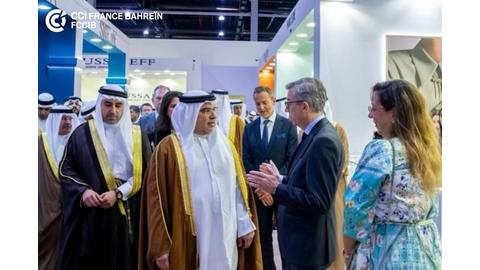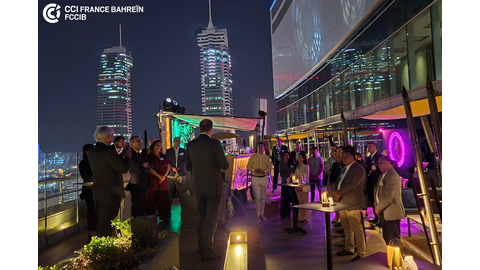Plans urged to ensure water and energy security

Water scarcity and energy security are intrinsically linked and the nexus between the two will be explored in a global report set to be released by the World Bank as a result of the first-of-its-kind event focused on water and climate change taking place in Bahrain.
The Global Water, Energy and Climate Change Congress (GWECCC) kicked off yesterday at the Gulf Convention Centre, under the patronage of deputy prime minister Shaikh Khalid bin Abdulla Al Khalifa.
During opening remarks, Oil and Environment Minister Dr Mohammed Bin Daina noted that energy security, water scarcity and climate change are “challenges of the future that have to be tackled today.”
“Our objective is to have an outcome or white paper that we can share at MENA (Middle East and North Africa) Week in Riyadh next month or COP28 in November about the importance of saving our water, protecting our environment and facing the challenge of climate change.”
During the opening international keynote addresses, World Bank Group global director of water global practice Saroj Jha also noted that the World Bank would be initiating a report on water and energy because of the convergence between water security and energy resilience.
“The new global report on the water-energy nexus is going to include a quantitative economic analysis and get into details and empirical evidence of which way policy decisions should be made,” Mr Jha added.
“There is a need for national water, energy and climate platforms to have the discussion we are having today, because much of the policies to be implemented would have to made on a country-by-country basis.”
In the Arabian Gulf, the water-energy challenges are ‘very clear’ due to the desalination industry and increased demand for energy and water whenever the temperature rises, according to the UN Environment Programme’s (UNEP) deputy regional director Abdul Majeid Haddad.
Mr Haddad went on to highlight that in desert island nations like Bahrain, the impact of water stress is even more pronounced, adding that four of the six most water-stressed countries in the world are in the Gulf region.
“Bahrain is currently facing severe water stress, with only three cubic metres of renewable groundwater per capita per year, compared to the global average of 1,000 cubic metres,” he added, in his remarks at the venue located adjacent to the Gulf Hotel in Adliya.
“The situation necessitates the conservation of this natural wealth and to lessen the heavy reliance on energy-intensive desalination and ensure water security.”
Globally, climate-related water scarcity could lead to economic losses of up to 14 per cent of national GDP over the next 30 years, according to a recent study by the World Resources Institute.
The deputy regional director went on to acknowledge Bahrain’s efforts to adapt to sea level rises as well as the implementation of the National Water Strategy.
He also highlighted that the UNEP would be complementing national efforts with a project funded by the Green Climate Facility to enhance climate resilience in the water sector.
The GWECCC continues today and tomorrow with panels examining emerging technological solutions for water and energy sustainability, as well as community engagement and sustainable financing to promote conservation.
Source: https://www.gdnonline.com/Details/1290330/Plans-urged-to-ensure-water-and-energy-security


